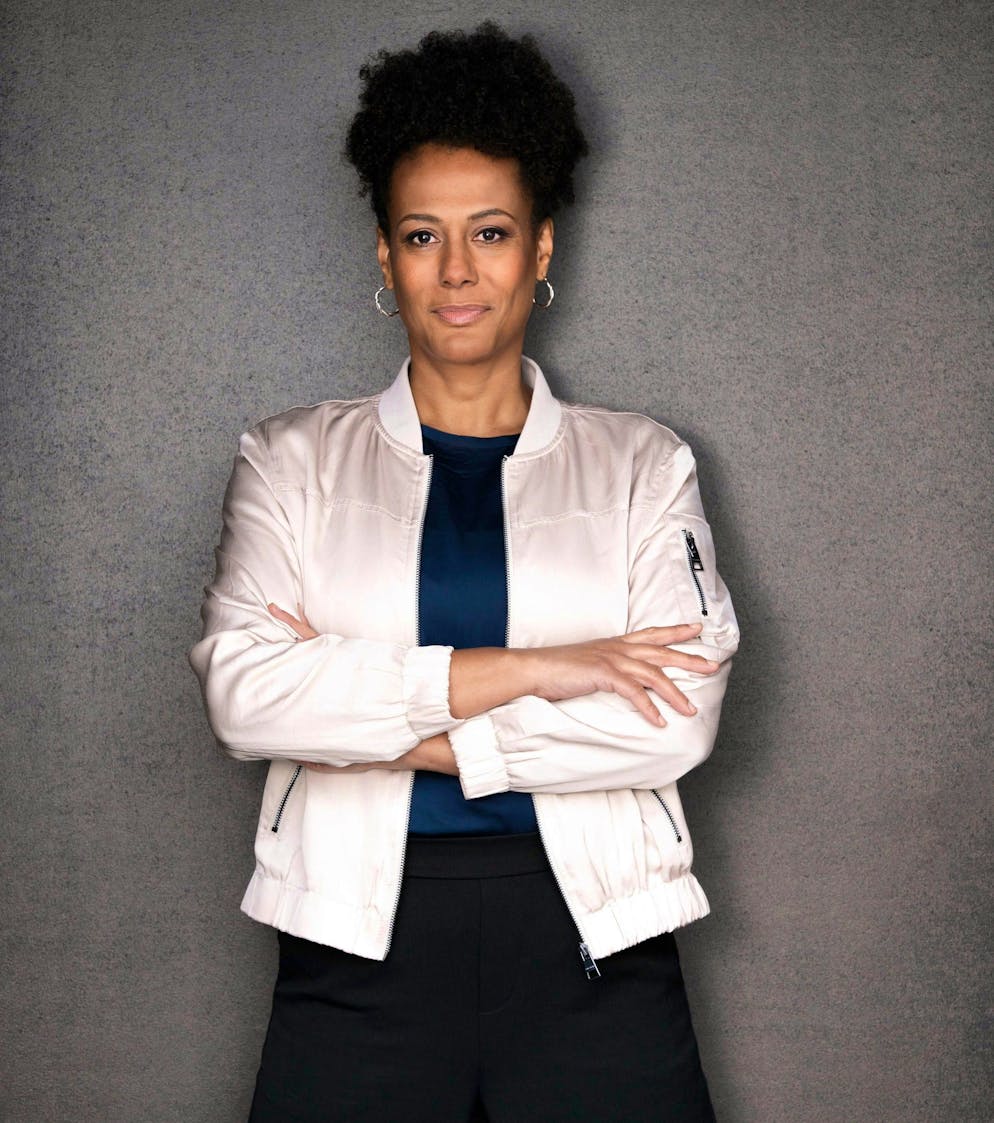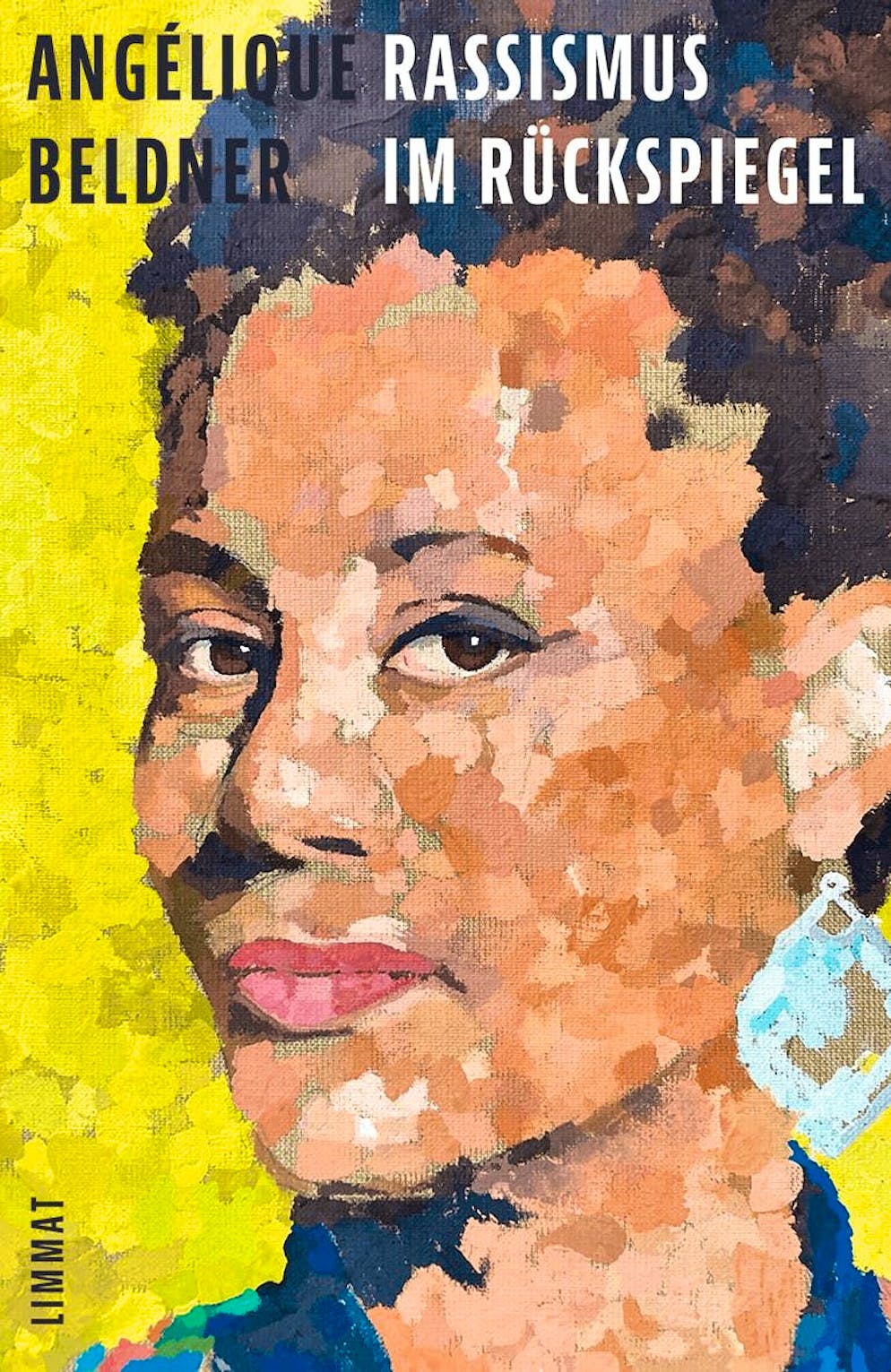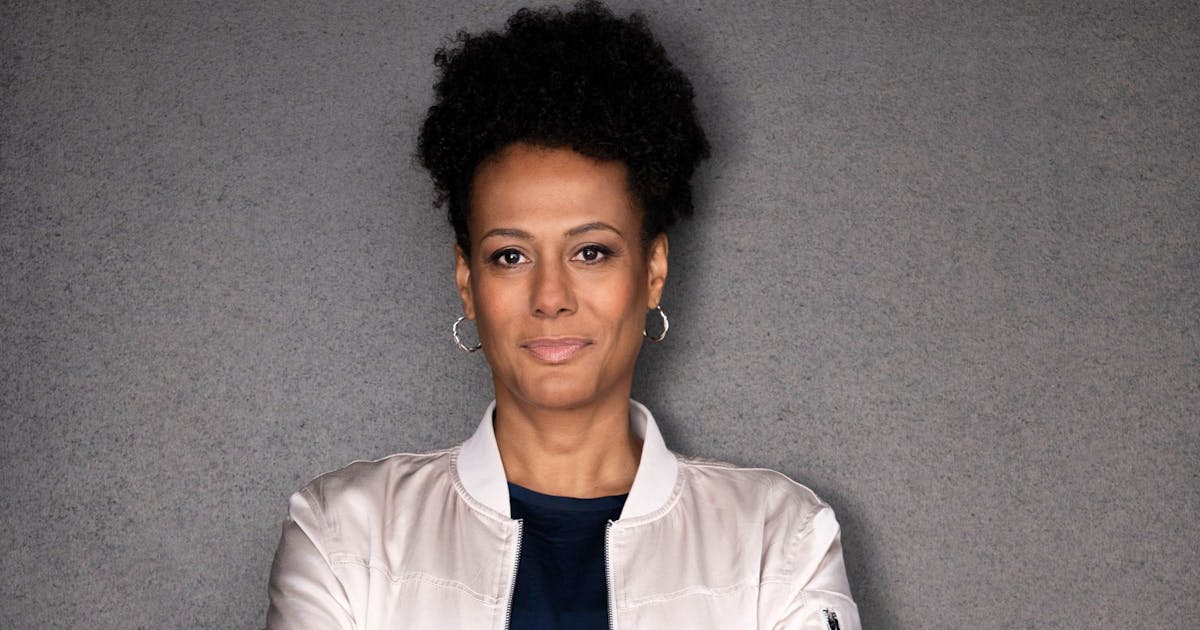
Angélique Beldner presented “Tagesschau” for ten years. Today, she can still be seen on television as the presenter of the quiz show “1 against 100”.
Ayse Yavas
Angélique Beldner has experienced racism her whole life. But for a long time she didn’t have the words for it. Now, in her new book, the SRF presenter talks openly about her experiences – and forces us to take a closer look.
No time? blue News summarizes for you
In her new book, SRF presenter Angélique Beldner talks about her personal experiences of racism and how she was unable to name them for a long time, often playing them down or making excuses.It was only through the Black Lives Matter movement in 2020 that she found words, began to talk about her blackness and publicly opened up to discussion.With her second book, she does not want to denounce racism, but rather use her personal story to continue the dialog on racism.
As a child, Angélique Beldner came across stereotypical depictions of black people in books. As a teenager, she was mistaken for a prostitute by a man on her way back to the hotel from the beach while on vacation. As a young adult, strangers praised her Bernese German. And when she sits in first class on the train today, other passengers sometimes explicitly point this out to her.
These are examples of the racism that Angélique Beldner talks about in her new book “Rassismus im Rückspiegel”. “I’ve experienced racism for as long as I can remember,” says Beldner in an interview with blue News. “I’ve always noticed that I have experiences that have to do with my appearance.”
But in her book, Beldner also talks about how she had no words for the racism she experienced for a long time. And how she kept silent. For over 40 years: “When I did talk about racism, I had the feeling that it was bad if you gave it too much weight,” says Beldner. In an interview with the SRF program “Glanz & Gloria” in 2018, she even said: “Of course there are sometimes criticisms that could be interpreted as racism. But then I try not to interpret it that way.”
This is also known as racial gaslighting. The denial of racist experiences. “If I keep hearing that I’m just imagining something or that I’m exaggerating when I feel hurt by a statement or action, at some point I believe it,” Beldner writes in the book. She apologized for the racism by saying that she certainly didn’t mean any harm.
Beldner did not want to stand out in a white environment
Beldner spent her early years living in Frutigen with her single mother, soon moved to Bern, became a journalist, then a radio presenter and finally joined television. She presented the Tagesschau for ten years, her last show was this summer, and she continues to present the quiz show “1 against 100”.
Looking back, Beldner writes in “Racism in the rear-view mirror” that she would probably never have had the idea of becoming a TV presenter if she hadn’t seen herself more as a white woman than a black woman. She wouldn’t have thought it possible. “I grew up in a white environment. I only had white people around me in my family, at school and during my training,” she explains in the interview. So it was important to her not to stand out in this white environment. “The fact that I got the job was like confirmation that I had successfully adapted,” she says.
«I started listening to others and realized that they were telling the same stories»
Author and presenter
Then came the summer of 2020 and the murder of George Floyd in the USA by white police officers. People around the world took to the streets, drawing attention to the racism experienced by people of color.
For Beldner, it was a confirmation of everything she had always felt. “I started listening to others and realized that they were telling the same stories. It made me more aware that I wasn’t imagining what I was experiencing, but that it was real.” What she had previously discussed quietly on her own was suddenly being discussed out loud in public.
Beldner then began to come to terms with her own blackness. She made a film for SRF Reporter, went to Frutigen to discuss the N-word with regulars. And she spoke to her father and sister about racism for the first time in Paris. She wrote her first book in 2021. In “The Summer I Became Black”, she talks to author Martin R. Dean about her experiences of racism.
It wasn’t clear from the start that she would now write another book. “I asked myself, can I and do I want to summon up the strength to go out in public again and have discussions like this?” says Beldner. She soon knew the answer: “Yes, I have to. It’s too important to me.”
She had actually wanted to write less about her own experiences this time, because racism is nothing individual. But the longer she worked on the book, the more she realized “that if I can embed more personal things, people will probably be more willing to look and listen.”
At the same time, she also says: “It’s not about my story. In fact, my story shouldn’t even be necessary.” Telling her own experiences of racism is rather a means to an end in order to understand what racism is and does. “I’m giving my story away, so to speak,” she says.
«The book is not meant to be a denunciation»
Author and presenter
Because the stories of those affected by racism are often similar. “It doesn’t matter who you talk to. You will always come across the same stories”. And Beldner’s examples – whether she is talking about her childhood in the 1970s or the present day – ultimately all have the same core: it was and is racism.
Beldner could be angry and reproach many people. The people she talks about in the book, who racially insulted and stereotyped her. At SRF, which told her when she first applied for the job of daytime show presenter that Switzerland was not yet ready for a black presenter. To white people in general.
“The book is not meant to be a denunciation,” says Beldner. “I think it gets us further if I say what is and what I feel without criticizing everyone at the same time.” She no longer excuses racism, but says: “It’s a social problem. “If we want to make progress, we have to name it,” says Beldner.
Honest and clear, but also patient
At the same time, she notes: “I notice that there is a lot of uncertainty when it comes to racism. And insecurity leads to people withdrawing and preferring not to say anything at all rather than saying the wrong thing. I want to prevent that.” With her second book, she is continuing what she started with the film and the first book. She enters into a dialog.
She talks about racism honestly and clearly, but also patiently. She says: Look, this is happening to me. That’s how it feels. Then she zooms out, brings in examples of other people of color or developments in society. And leaves it up to the readers themselves to think about what this means for their own actions. The only thing the book no longer allows is silence about racism.

Angélique Beldner: “Racism in the rear-view mirror”. 192 pages. Limmat Verlag, 2025.
More from this section

